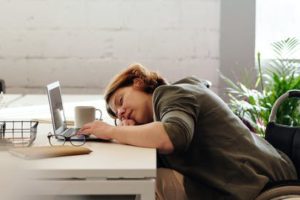Highly Processed Foods Could Be Addictive As Tobacco, Study Says
You might have heard the notion that processed foods are unhealthy, but that should
You might have heard the notion that processed foods are unhealthy, but that should
Often skin cancer is associated with exposure to ultraviolet light, but it turns out

Although most parents are concerned about the impact video games can have on their

A new research has shown that sleeping for less than five hours per night

A new study has established that strict parenting can lead to depression in children.
A new study has found that smoking cigarettes can block oestrogen production in women’s
Humans often sleep because they get to sleep, according to sleep researcher William Dement.
You may have heard that eating a balanced diet can reduce the risk for
According to new research, having dinner regularly as a family could be the key
According to the latest research, practicing mind relaxation techniques such as medication in older
Maintaining a healthy lifestyle is sometimes challenging, particularly if you’re constantly exposed to unhealthy

Exercise has numerous advantageous health effects in addition to aiding in weight loss or
Research has shown that a common pattern of sleep disorders in seniors is not a problem with falling asleep, but rather staying asleep. This is because many seniors wake up in the night to urinate or because of aches and pains. There is also evidence that seniors tend to become more “nocturnal” as they age, which contributes to not being able to go back to sleep.
Using “sleeping pills” or other sedative types of medicines are therefore not an effective solution, plus these medications can prove very harmful for seniors. Some safer and more effective treatments for sleep problems are discussed below.
Research has shown that a common pattern of sleep disorders in seniors is not a problem with falling asleep, but rather staying asleep. This is because many seniors wake up in the night to urinate or because of aches and pains. There is also evidence that seniors tend to become more “nocturnal” as they age, which contributes to not being able to go back to sleep.
Using “sleeping pills” or other sedative types of medicines are therefore not an effective solution, plus these medications can prove very harmful for seniors. Some safer and more effective treatments for sleep problems are discussed below.

This therapy helps a person to avoid negative thoughts that promote insomnia, plus it teaches regular sleep habits, relaxation techniques, and other behavioral techniques that improve sleep. While usually done in person, there are also online CBT-I programs that are effective.
A shorter version of this therapy is Brief Behavioral Treatment of Insomnia (BBTI), which is designed to last for four weeks. This particular type of therapy has had success in reducing nighttime urination (often a cause of seniors’ sleep problems).
This is a special form of meditation that has been effective in helping various types of sleep disorders in seniors. This treatment is designed to be done in a course that meets once a week for a two hour class over a six week period. These courses are held in many community centers, especially senior citizen centers. This is also offered in a limited fashion online.
In general, some form of exercise is good for a senior’s health. Some studies have shown that a lack of physical activity can contribute to insomnia. Helpful exercise should be mild to moderate, such as walking, biking, etc. Any exercise should be during the daytime, because at night it could actually cause sleeping problems. Also, exercise by itself usually will not be effective in helping chronic sleep problems.
Melatonin is a natural hormone that helps promote sleep. This is why many people get tired after eating turkey, which contains a high amount of melatonin. Most people can safely take melatonin supplements, but they need to be sure that the supplement they use is pure and of high quality.
This is an older type of a very mild anti-depressant that has a sedative effect. It is a type of drug that is not as dangerous as drugs labeled as sleeping pills. There is some evidence that this medicine is helpful to improve sleep in Alzheimer’s patients.
| Cookie | Duration | Description |
|---|---|---|
| cookielawinfo-checbox-analytics | 11 months | This cookie is set by GDPR Cookie Consent plugin. The cookie is used to store the user consent for the cookies in the category "Analytics". |
| cookielawinfo-checbox-functional | 11 months | The cookie is set by GDPR cookie consent to record the user consent for the cookies in the category "Functional". |
| cookielawinfo-checbox-others | 11 months | This cookie is set by GDPR Cookie Consent plugin. The cookie is used to store the user consent for the cookies in the category "Other. |
| cookielawinfo-checkbox-advertisement | 1 year | The cookie is set by GDPR cookie consent to record the user consent for the cookies in the category "Advertisement". |
| cookielawinfo-checkbox-necessary | 11 months | This cookie is set by GDPR Cookie Consent plugin. The cookies is used to store the user consent for the cookies in the category "Necessary". |
| cookielawinfo-checkbox-performance | 11 months | This cookie is set by GDPR Cookie Consent plugin. The cookie is used to store the user consent for the cookies in the category "Performance". |
| crumb | This cookie is set by websites that uses SquareSpace platform. The cookie is used to prevent cross-site request forgery (CSRF). | |
| elementor | never | This cookie is used by the website's WordPress theme. It allows the website owner to implement or change the website's content in real-time. |
| gdpr_status | 6 months 2 days | This cookie is set by the provider Media.net. This cookie is used to check the status whether the user has accepted the cookie consent box. It also helps in not showing the cookie consent box upon re-entry to the website. |
| viewed_cookie_policy | 11 months | The cookie is set by the GDPR Cookie Consent plugin and is used to store whether or not user has consented to the use of cookies. It does not store any personal data. |
| XSRF-TOKEN | session | The cookie is set by Wix website building platform on Wix website. The cookie is used for security purposes. |
| Cookie | Duration | Description |
|---|---|---|
| __gads | 1 year 24 days | This cookie is set by Google and stored under the name dounleclick.com. This cookie is used to track how many times users see a particular advert which helps in measuring the success of the campaign and calculate the revenue generated by the campaign. These cookies can only be read from the domain that it is set on so it will not track any data while browsing through another sites. |
| _ga | 2 years | This cookie is installed by Google Analytics. The cookie is used to calculate visitor, session, campaign data and keep track of site usage for the site's analytics report. The cookies store information anonymously and assign a randomly generated number to identify unique visitors. |
| _ga_XZV5DHF9VD | 2 years | This cookie is installed by Google Analytics. |
| _gat_gtag_UA_71463705_9 | 1 minute | This cookie is set by Google and is used to distinguish users. |
| _gat_UA-71463705-9 | 1 minute | This is a pattern type cookie set by Google Analytics, where the pattern element on the name contains the unique identity number of the account or website it relates to. It appears to be a variation of the _gat cookie which is used to limit the amount of data recorded by Google on high traffic volume websites. |
| _gcl_au | 3 months | This cookie is used by Google Analytics to understand user interaction with the website. |
| _gid | 1 day | This cookie is installed by Google Analytics. The cookie is used to store information of how visitors use a website and helps in creating an analytics report of how the website is doing. The data collected including the number visitors, the source where they have come from, and the pages visted in an anonymous form. |
| CONSENT | 16 years 5 months 20 days 12 hours | These cookies are set via embedded youtube-videos. They register anonymous statistical data on for example how many times the video is displayed and what settings are used for playback.No sensitive data is collected unless you log in to your google account, in that case your choices are linked with your account, for example if you click “like” on a video. |
| session_depth | 30 minutes | This cookie is used to store the number of pages a vistor visits in a session on the website. |
| Cookie | Duration | Description |
|---|---|---|
| _fbp | 3 months | This cookie is set by Facebook to deliver advertisement when they are on Facebook or a digital platform powered by Facebook advertising after visiting this website. |
| B | 1 year | This Cookie is used by Yahoo to provide ads, contents or analytics. |
| DSID | 1 hour | This cookie is setup by doubleclick.net. This cookie is used by Google to make advertising more engaging to users and are stored under doubleclick.net. It contains an encrypted unique ID. |
| fr | 3 months | The cookie is set by Facebook to show relevant advertisments to the users and measure and improve the advertisements. The cookie also tracks the behavior of the user across the web on sites that have Facebook pixel or Facebook social plugin. |
| id | 1 year | The main purpose of this cookie is targeting and advertising. It is used to create a profile of the user's interest and to show relevant ads on their site. This Cookie is set by DoubleClick which is owned by Google. |
| IDE | 1 year 24 days | Used by Google DoubleClick and stores information about how the user uses the website and any other advertisement before visiting the website. This is used to present users with ads that are relevant to them according to the user profile. |
| test_cookie | 15 minutes | This cookie is set by doubleclick.net. The purpose of the cookie is to determine if the user's browser supports cookies. |
| uuid2 | 3 months | This cookies is set by AppNexus. The cookies stores information that helps in distinguishing between devices and browsers. This information us used to select advertisements served by the platform and assess the performance of the advertisement and attribute payment for those advertisements. |
| VISITOR_INFO1_LIVE | 5 months 27 days | This cookie is set by Youtube. Used to track the information of the embedded YouTube videos on a website. |
| YSC | session | This cookies is set by Youtube and is used to track the views of embedded videos. |
| Cookie | Duration | Description |
|---|---|---|
| __ib2pgses_1186_a | session | No description |
| __ib2pgses_1198_a | session | No description |
| __ib2pgses_1221_a | session | No description |
| __ib2pgses_1253_a | session | No description |
| __ib2pgses_1283_a | session | No description |
| __ib2pgses_1476_a | session | No description |
| __ib2vid | 1 month | No description available. |
| _app_session | 1 month | No description available. |
| _gfpc | session | No description available. |
| A3 | 1 year | No description |
| akacd_widgets_routing | past | No description available. |
| ans3 | 2 days | No description |
| check | 1 day | No description available. |
| GoogleAdServingTest | session | No description |
| L-y13n2 | 1 day | No description |
| outbrain_cid_fetch | 5 minutes | No description available. |
| owner_token | 1 day | No description available. |
| PP-y13n2 | 1 hour | No description |
| r | 7 days | No description |
| recs_3e571bd1fd579a0c57cc16aa155ba54b | past | No description |
| RL-y13n2 | 1 day | No description |
| thirdparty | 1 hour | No description available. |
| yt-remote-connected-devices | never | No description available. |
| yt-remote-device-id | never | No description available. |